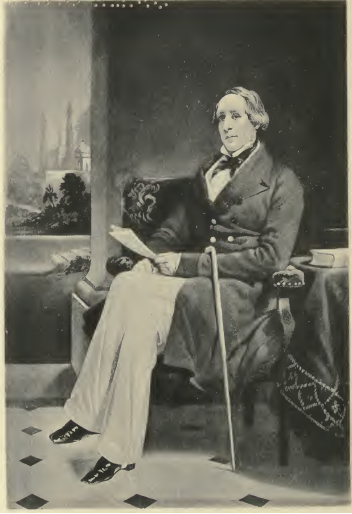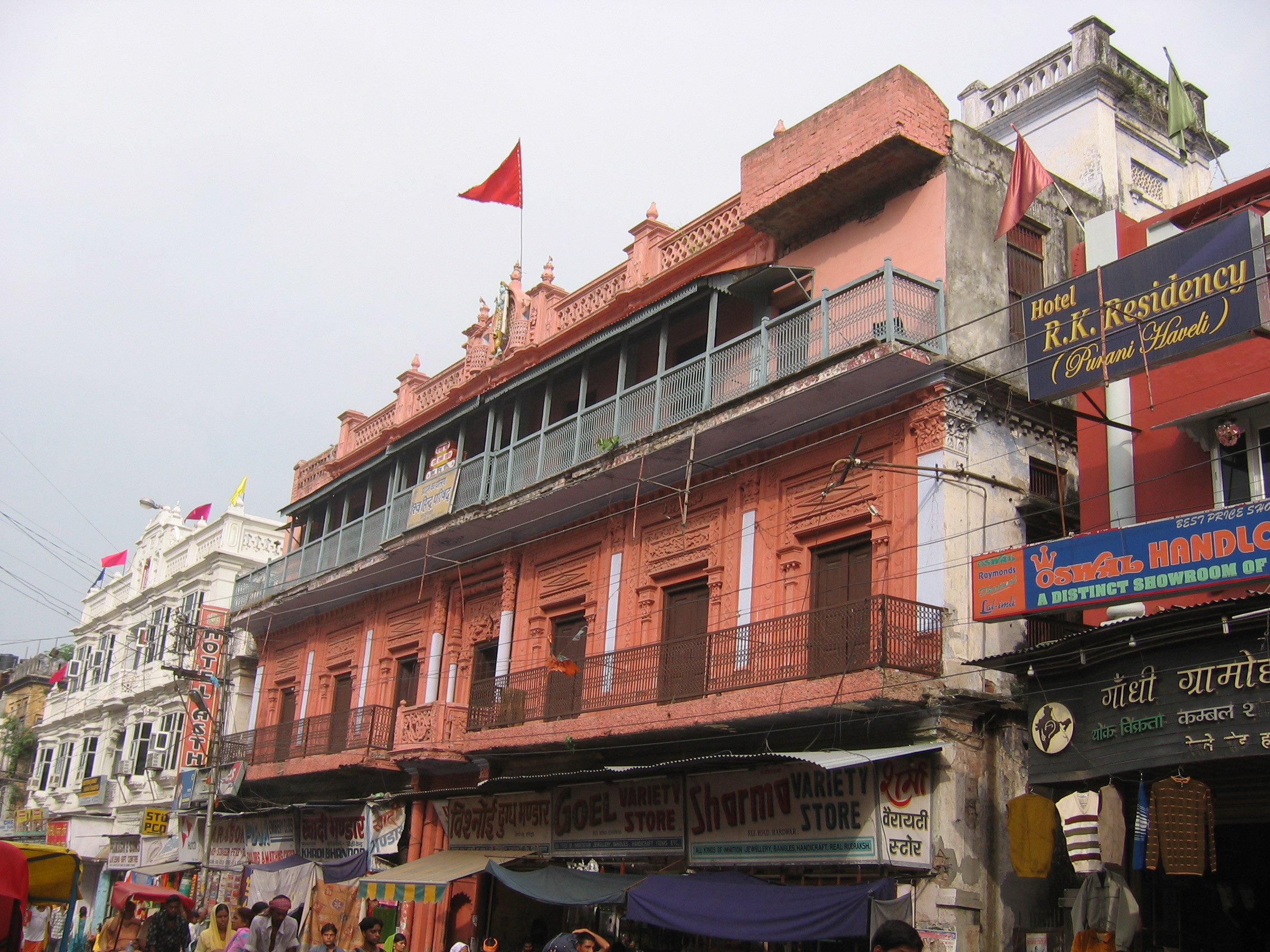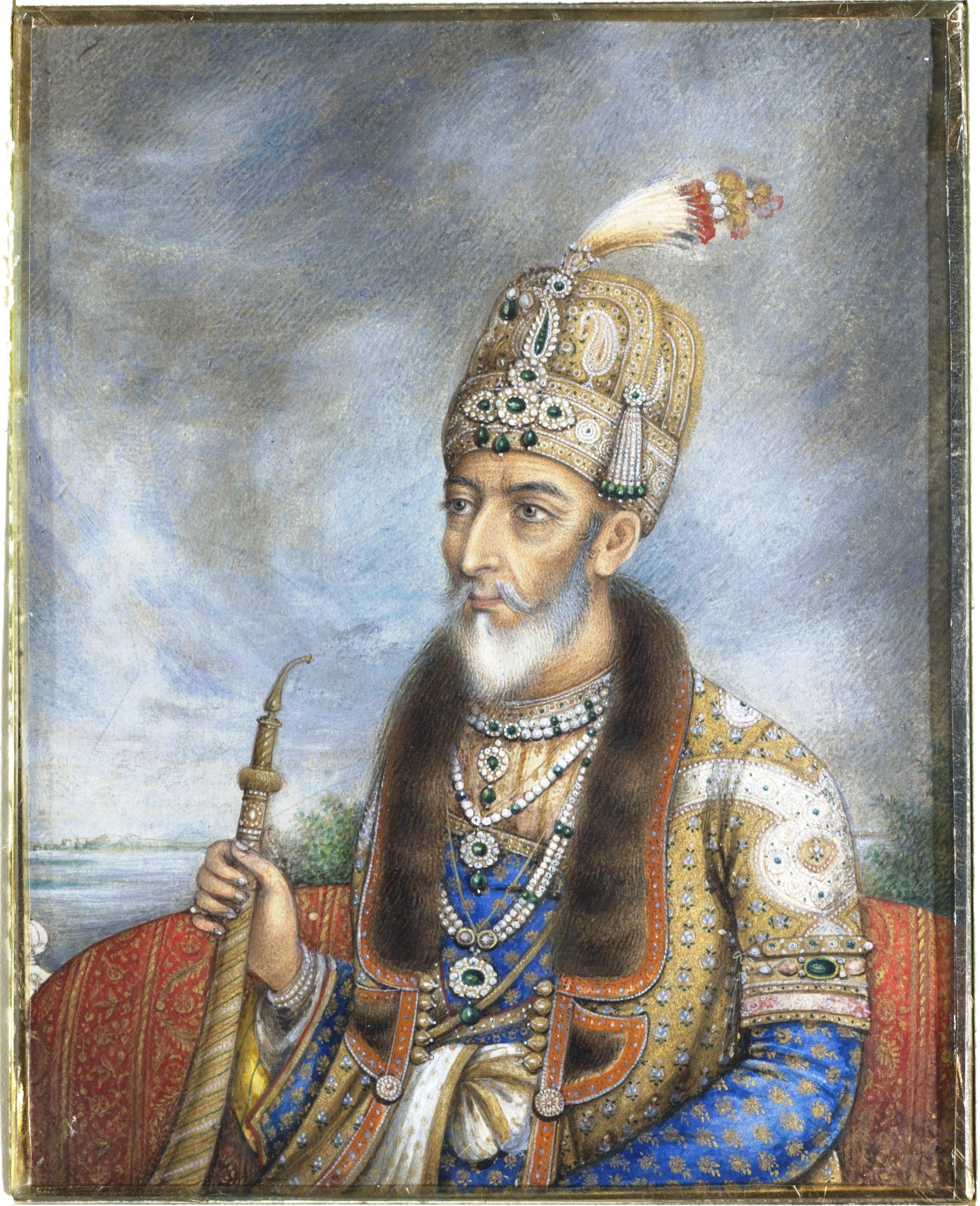|
Kanaiyalal Maneklal Munshi
Kanhaiyalal Maneklal Munshi (; 30 December 1887 – 8 February 1971), popularly known by his pen name Ghanshyam Vyas, was an Indian independence movement activist, politician, writer from Gujarat state. A lawyer by profession, he later turned to author and politician. He is a well-known name in Gujarati literature. He founded Bharatiya Vidya Bhavan, an educational trust, in 1938. Munshi wrote his works in three languages namely Gujarati, English and Hindi. Before independence of India, Munshi was part of Indian National Congress and after independence, he joined Swatantra Party. Munshi held several important posts like member of Constituent Assembly of India, minister of agriculture and food of India, and governor of Uttar Pradesh. In his later life, he was one of the founding members of Vishva Hindu Parishad. Early life Munshi was born on 30 December 1887 at Bharuch, a town in Gujarat State of British India in a Bhargav Brahmin family. Munshi took admission at Baroda Coll ... [...More Info...] [...Related Items...] OR: [Wikipedia] [Google] [Baidu] |
Governor Of Uttar Pradesh
The governor of Uttar Pradesh (ISO 15919, ISO: ''Uttara Pradēśa kē Rājyapāla'') is the constitutional head of the Indian state of Uttar Pradesh. The governor is appointed by the president of India. The post is preceded by the governor of United Provinces of British India, United Provinces of Presidencies and provinces of British India, pre-independent India as well as Indian independence movement, independent India from 15 August 1947 to 25 January 1950. The province was renamed as Uttar Pradesh on 24 January 1950.(23rd if governors with additional charge also counted) Powers and functions The governor has: *Executive powers related to administration, appointments and removals, *Legislative powers related to lawmaking and the state legislature, that is Vidhan Sabha or Vidhan Parishad, and *Discretionary powers to be carried out according to the discretion of the Governor. In his ex-officio capacity, the governor of Uttar Pradesh is chancellor of the universities of Utt ... [...More Info...] [...Related Items...] OR: [Wikipedia] [Google] [Baidu] |
Bombay State
Bombay State was a large Indian state created in 1950 from the erstwhile Bombay Province, with other regions being added to it in the succeeding years. Bombay Province (in British India roughly equating to the present-day Indian state of Maharashtra, excluding Marathwada and Vidarbha) was merged with the princely states of Baroda, Western India and Gujarat (the present-day Indian state of Gujarat) and the Deccan States (which included parts of the present-day Indian states of Maharashtra and Karnataka). On 1 November 1956, Bombay State was reorganised under the States Reorganisation Act on linguistic lines, absorbing various territories including the Saurashtra and Kutch States, which ceased to exist. On 1 May 1960, Bombay State was dissolved and split on linguistic lines into the two states of Gujarat, with Gujarati speaking population and Maharashtra, with Marathi speaking population. History During the British Raj, portions of the western coast of India under d ... [...More Info...] [...Related Items...] OR: [Wikipedia] [Google] [Baidu] |
Vishva Hindu Parishad
Vishva Hindu Parishad (VHP) () is an Indian Right-wing politics, right-wing Hindu organisation based on Hindutva, Hindu nationalism. The VHP was founded in 1964 by M. S. Golwalkar and S. S. Apte in collaboration with Chinmayananda Saraswati, Swami Chinmayananda. Its stated objective is "to organise, consolidate the Hindu society and to serve and protect the Hindu Dharma". It was established to construct and renovate Hindu temples, and deal with matters of Cattle slaughter in India, cow slaughter and religious conversion. The VHP is a member of the Sangh Parivar group, the family of Hindu nationalism, Hindu nationalist organisations led by the Rashtriya Swayamsevak Sangh, RSS. The VHP has been criticised for contributing to violence against Muslims in India, most notably for its role in the demolition of the Babri Masjid in 1992 over the Ayodhya dispute. History The VHP was founded in 1964 by RSS leaders M. S. Golwalkar and S. S. Apte in collaboration with the Hindu spir ... [...More Info...] [...Related Items...] OR: [Wikipedia] [Google] [Baidu] |
Uttar Pradesh
Uttar Pradesh ( ; UP) is a States and union territories of India, state in North India, northern India. With over 241 million inhabitants, it is the List of states and union territories of India by population, most populated state in India as well as the List of first-level administrative divisions by population, most populous country subdivision in the world – more populous than List of countries and dependencies by population, all but four other countries outside of India (China, United States, Indonesia, and Pakistan) – and accounting for 16.5 percent of the population of India or around 3 percent of the total world population. The state is bordered by Rajasthan to the west, Haryana, Himachal Pradesh and Delhi to the northwest, Uttarakhand and Nepal to the north, Bihar to the east, Madhya Pradesh, Chhattisgarh and Jharkhand to the south. It is the List of states of India by area, fourth-largest Indian state by area covering , accounting for 7.3 percent of the total ... [...More Info...] [...Related Items...] OR: [Wikipedia] [Google] [Baidu] |
Gujarati Literature
The history of Gujarat, Gujarati literature () may be traced to 1000 AD, and this literature has flourished since then to the present. It is unique in having almost no patronage from a ruling dynasty, other than its composers. Gujarat Vidhya Sabha, Gujarat Sahitya Sabha, Gujarat Sahitya Akademi and Gujarati Sahitya Parishad are Gujarat-based literary institutions promoting the Gujarati literature. History Such factors as the policies of the rulers, the living style of the people, and the worldwide influence on society are important for any literature to flourish. In Gujarat, due to the development of trade and commerce, the religious influence of Jainism as well as Hinduism, and also due to the safety and encouragement of rulers like Chaulukya dynasty, Chaulukya (Solanki) and Vaghela dynasty, Vaghela Rajputs, literary activities were in full force from the 11th century. * Gujarati literature ** Early literature (up to 1450 AD) *** Prāg-Narsinh Yug (1000 AD to 1450 AD) **** ... [...More Info...] [...Related Items...] OR: [Wikipedia] [Google] [Baidu] |
Gujarat
Gujarat () is a States of India, state along the Western India, western coast of India. Its coastline of about is the longest in the country, most of which lies on the Kathiawar peninsula. Gujarat is the List of states and union territories of India by area, fifth-largest Indian state by area, covering some ; and the List of states and union territories of India by population, ninth-most populous state, with a population of 60.4 million in 2011. It is bordered by Rajasthan to the northeast, Dadra and Nagar Haveli and Daman and Diu to the south, Maharashtra to the southeast, Madhya Pradesh to the east, and the Arabian Sea and the Pakistani province of Sindh to the west. Gujarat's capital city is Gandhinagar, while its largest city is Ahmedabad. The Gujarati people, Gujaratis are indigenous to the state and their language, Gujarati language, Gujarati, is the state's official language. The state List of Indus Valley civilisation sites#List of Indus Valley sites discovered, ... [...More Info...] [...Related Items...] OR: [Wikipedia] [Google] [Baidu] |
Indian Independence Movement
The Indian independence movement was a series of historic events in South Asia with the ultimate aim of ending British Raj, British colonial rule. It lasted until 1947, when the Indian Independence Act 1947 was passed. The first nationalistic movement took root in the newly formed Indian National Congress with prominent moderate leaders seeking the right to appear for Indian Civil Service examinations in British India, as well as more economic rights for natives. The first half of the 20th century saw a more radical approach towards self-rule. The stages of the independence struggle in the 1920s were characterised by the leadership of Mahatma Gandhi and Congress's adoption of Gandhi's policy of non-violence and Salt March, civil disobedience. Some of the leading followers of Gandhi's ideology were Jawaharlal Nehru, Vallabhbhai Patel, Abdul Ghaffar Khan, Maulana Azad, and others. Intellectuals such as Rabindranath Tagore, Subramania Bharati, and Bankim Chandra Chattopadhyay spr ... [...More Info...] [...Related Items...] OR: [Wikipedia] [Google] [Baidu] |
Patan Trilogy
Patan trilogy consists of three Gujarati historical novels written by Indian writer Kanaiyalal Maneklal Munshi. These three novels are ''Patan Ni Prabhuta'' (), ''Gujarat No Nath'' () and ''Rajadhiraj'' (). Written in chronological order, though having separate stories, the trilogy deals with the Solanki rule in Gujarat. Publication history Munshi published the first part of trilogy, ''Patan Ni Prabhuta'', in 1916 under the pseudonym 'Ghanshyam'. The second part, ''Gujarat No Nath'', and the third part, ''Rajadhiraj'', were published in 1917 and 1922 respectively. Characters The principle characters of the novel are: *Munjalamatya (chief minister) of Patan *Jayasimhathe young king of Patan *Minal''Rajamata'' (mother of the king), beloved of Munjal *Kakan adventurous warrior *Manjaria young, modern woman who marries Kak *Kirtideva visionary, Mujal's son Plot ''Patan Ni Prabhuta'', the first of the series, has ''Asmita'' (self-consciousness) as its theme. Minaldevi, the mother of ... [...More Info...] [...Related Items...] OR: [Wikipedia] [Google] [Baidu] |
Lilavati Munshi
Lilavati Munshi was an Indian politician and Gujarati essayist. She was a member of the Bombay Legislative Assembly from 1937 to 1946 and the Rajya Sabha from 1952 to 1958 as a member of the Indian National Congress. She wrote essays and sketches. Biography Lilavati was born on 21 May 1899 in a Gujarati Jain family of Keshavlal. Since the 1920s, she was associated with the Indian independence movement. She participated in the Salt Satyagraha and the Civil Disobedience Movement. She was imprisoned by the British authorities for her activism. In the 1950s, she founded the Society for the Prevention of Unhealthy Trends in Motion Pictures in Bombay. In 1954, she moved a resolution to prohibit screening of 'undesirable' films and obscene scenes, which was adopted by the House following which the government amended the Cinematograph Act in 1959. Kissing scenes were not uncommon in Indian films till the 1950s; it was largely due to her movement that they vanished. She was a memb ... [...More Info...] [...Related Items...] OR: [Wikipedia] [Google] [Baidu] |
Jan Sangh
The Akhil Bharatiya Jana Sangh ( BJS or JS, short name: Jan Sangh) was a Hindutva political party active in India. It was established on 21 October 1951 in Delhi by three founding members: Shyama Prasad Mukherjee, Balraj Madhok and Deendayal Upadhyaya. Jan Sangh was the political arm of Rashtriya Swayamsevak Sangh (RSS), a right-wing Hindutva paramilitary volunteer organisation. In 1977, it merged with several other left, centre and right parties opposed to the Indian National Congress and formed the Janata Party. In 1980, the members of erstwhile Jan Sangh quit the Janata party after the defeat in the 1980 general elections and formed the Bharatiya Janata Party, which is the direct political successor to the Jan Sangh. Origins Many members of the right-wing Hindu nationalist Rashtriya Swayamsevak Sangh (RSS) began to contemplate the formation of a political party to continue their work, begun in the days of the British Raj, and take their ideology further. Around the s ... [...More Info...] [...Related Items...] OR: [Wikipedia] [Google] [Baidu] |
Swatantra Party
The Swatantra Party was an Indian classical liberal political party that existed from 1959 to 1974. It was founded by C. Rajagopalachari in reaction to what he felt was the Jawaharlal Nehru-dominated Indian National Congress's increasingly socialist and statist outlook. The party had a number of distinguished leaders, most of them old Congressmen, like C. Rajagopalachari, Minoo Masani, N. G. Ranga, Darshan Singh Pheruman, Udham Singh Nagoke and K. M. Munshi. The provocation for the formation of the party was the left turn that the Congress took at Avadi and the Nagpur Resolutions. Swatantra stood for a market-based economy and the dismantling of the " Licence Raj" although it opposed ''laissez-faire'' policies. Swatantra was not a religion-based party, unlike the Hindu nationalism of the Bharatiya Jana Sangh. In 1960, Rajagopalachari and his colleagues drafted a 21-point manifesto detailing why Swatantra had to be formed even though they had been Congressmen and asso ... [...More Info...] [...Related Items...] OR: [Wikipedia] [Google] [Baidu] |
Indian National Congress
The Indian National Congress (INC), colloquially the Congress Party, or simply the Congress, is a political parties in India, political party in India with deep roots in most regions of India. Founded on 28 December 1885, it was the first modern Nationalism, nationalist movement to emerge in the British Empire in Asia and Africa. From the late 19th century, and especially after 1920, under the leadership of Mahatma Gandhi, the Congress became the principal leader of the Indian independence movement. The Congress led India to independence from the United Kingdom, and significantly influenced other Decolonization, anti-colonial nationalist movements in the British Empire. The INC is a "big tent" party that has been described as sitting on the Centrism, centre of the Indian politics, Indian political spectrum. The party held its first session in 1885 in Mumbai, Bombay where Womesh Chunder Bonnerjee, W.C. Bonnerjee presided over it. After Indian independence in 1947, Congress eme ... [...More Info...] [...Related Items...] OR: [Wikipedia] [Google] [Baidu] |






